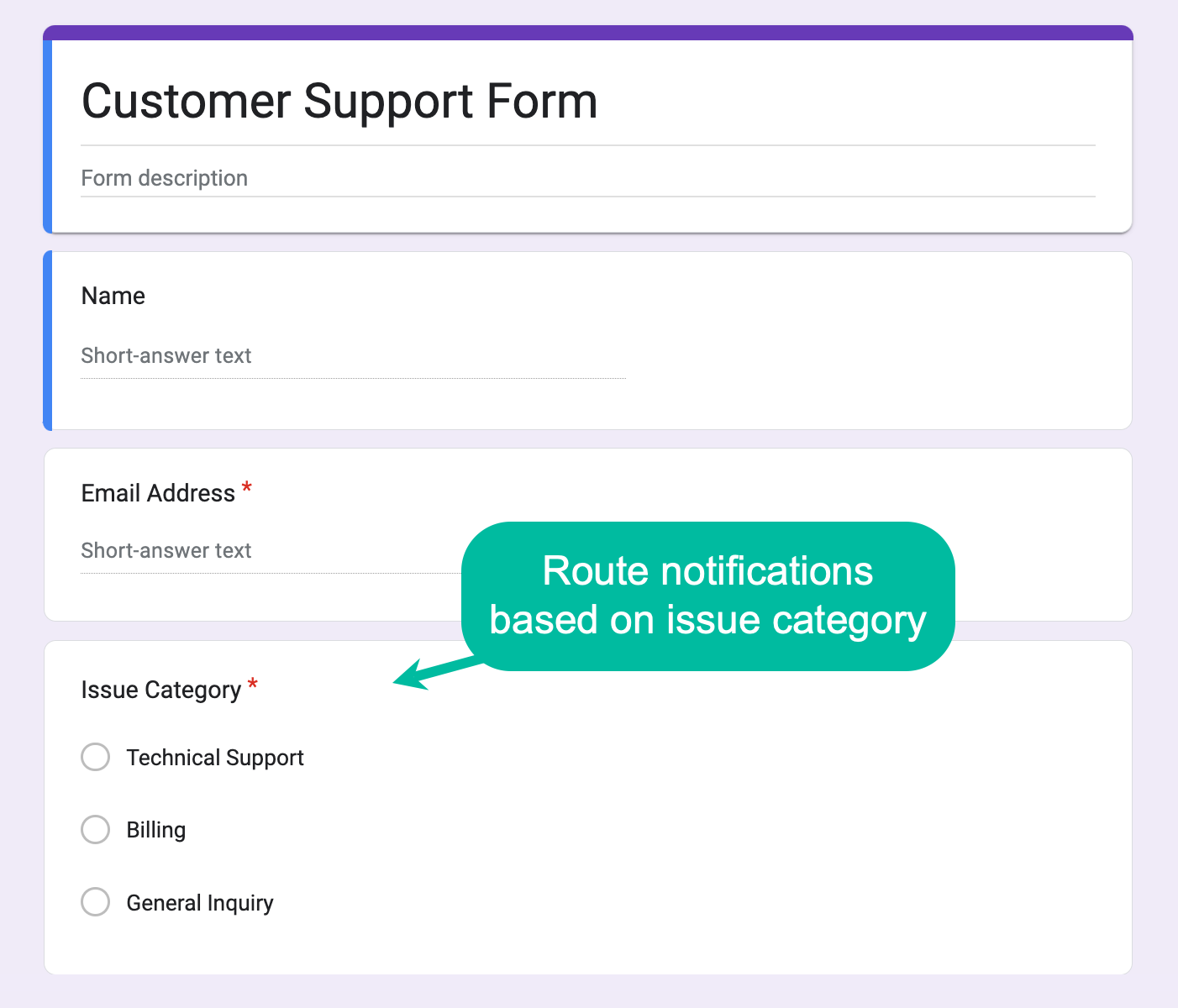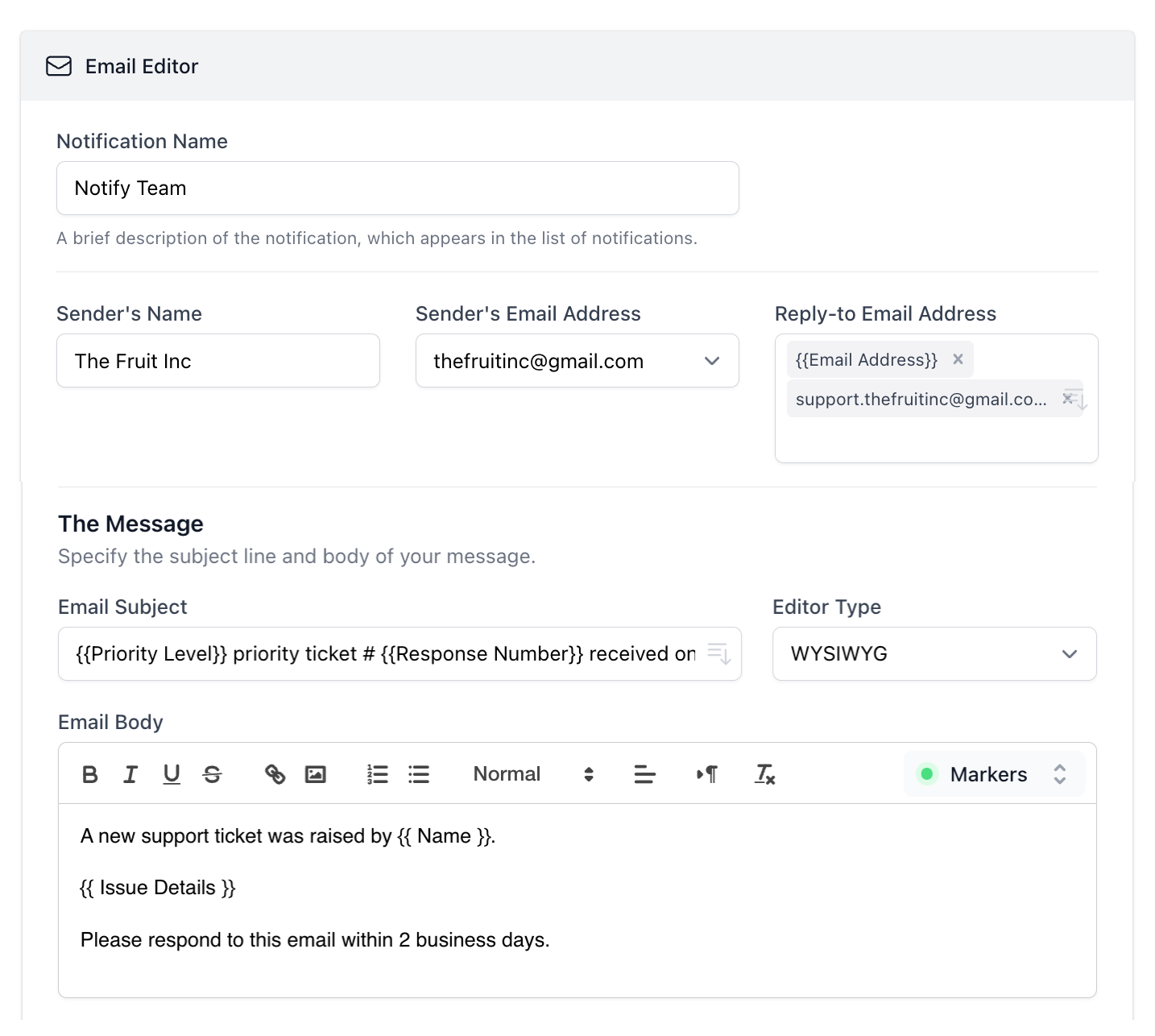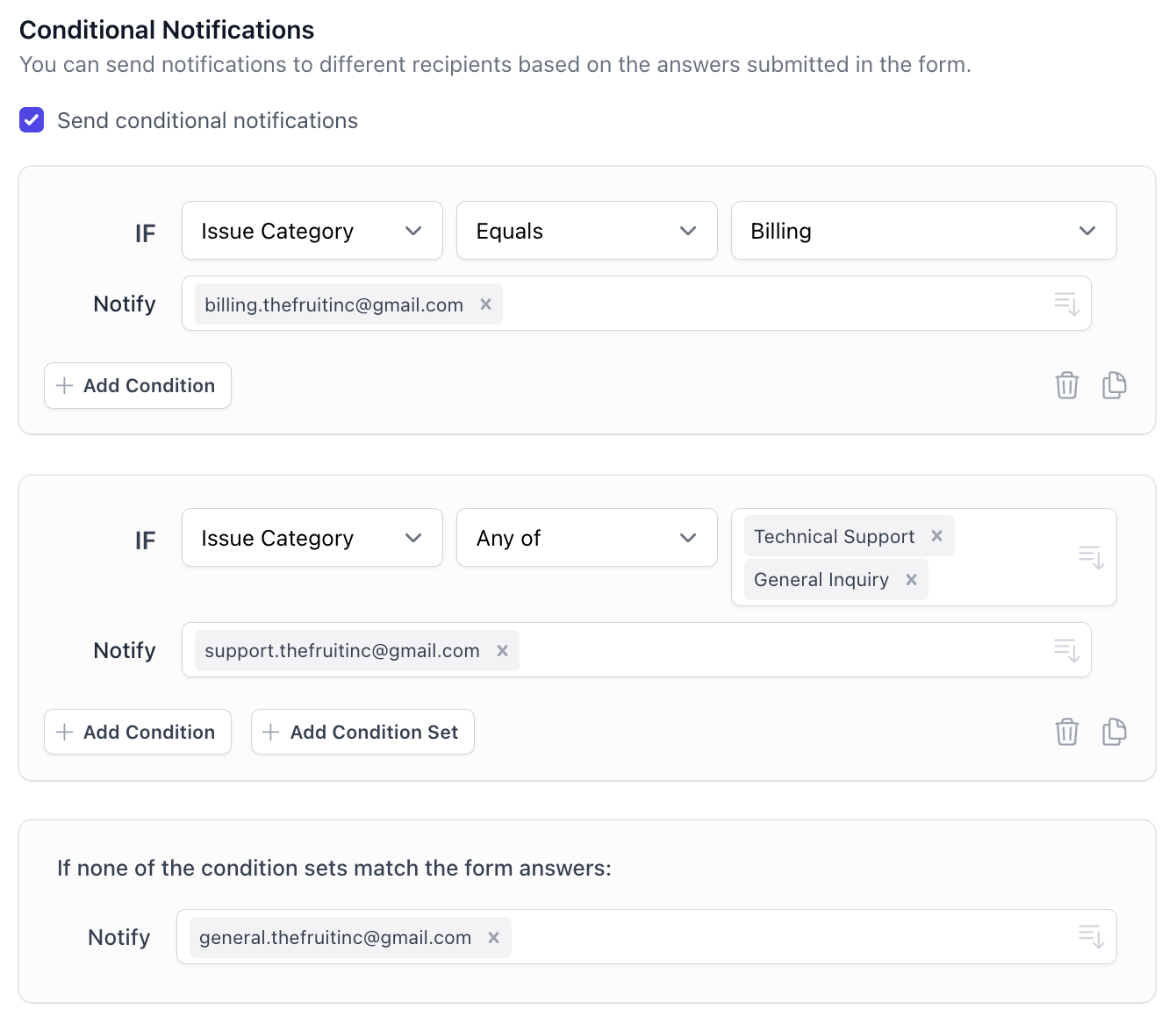How to Send Conditional Notification Emails Based on Google Form Answers
With the Form Notifications add-on, you can easily set up conditional notification emails that are sent to the form respondent or your team members only when one or more specified conditions are met.
To give you an example, if a Google Form asks the age of the submitter, you can send a notification email to the parent if the age entered is less than 18. If you are using Google Forms for tech support, you can send an escalation email to the manager if the customer has selected "high" for the severity level. Another example can be of a class teacher who wants to send emails to students based on their scores in a Google form quiz.
Condition-based notifications in Google Forms can also help you route emails to different team members based on form answers.
Set up Notifications Based on Conditions
For this example, we have a Google Form for capturing support requests from customers for three different issue categories, technical, billing, and general inquiry. We will be setting up a workflow to send conditional email notifications to the respective team, for which an inquiry has been received.

Open your Google Form, launch the forms add-on, and choose Email Notification from the Create menu.
Give this notification a name and specify the sender’s details. In this example, we have specified the Reply-to email address as the form field where the customer enters their email address. Thus, when a team member replies to this email notification, the customer will automatically get the response. You can add multiple email addresses in this field.
The next step is to specify the subject line and create the email template.

Define Conditional Email Logic
In the Recipients section, enable the Send conditional notifications button. This is where you specify the condition and the email address(es) where the notifications should be sent if the conditions are met. You can set multiple conditions, and make use of various criteria filters to route the notification emails accordingly.
You can put multiple email addresses by separating them with commas. The email fields also accept dynamic form fields so you can send confirmation emails to the respondent's address that they have entered in the form.

In case the customer’s response does not match any of the specified conditions, you have the option to route the email notification to a separate email address. If that address is not specified, no notification is generated for that response.
The conditional logic consists of rules and each rule can have one or more criteria with filters.